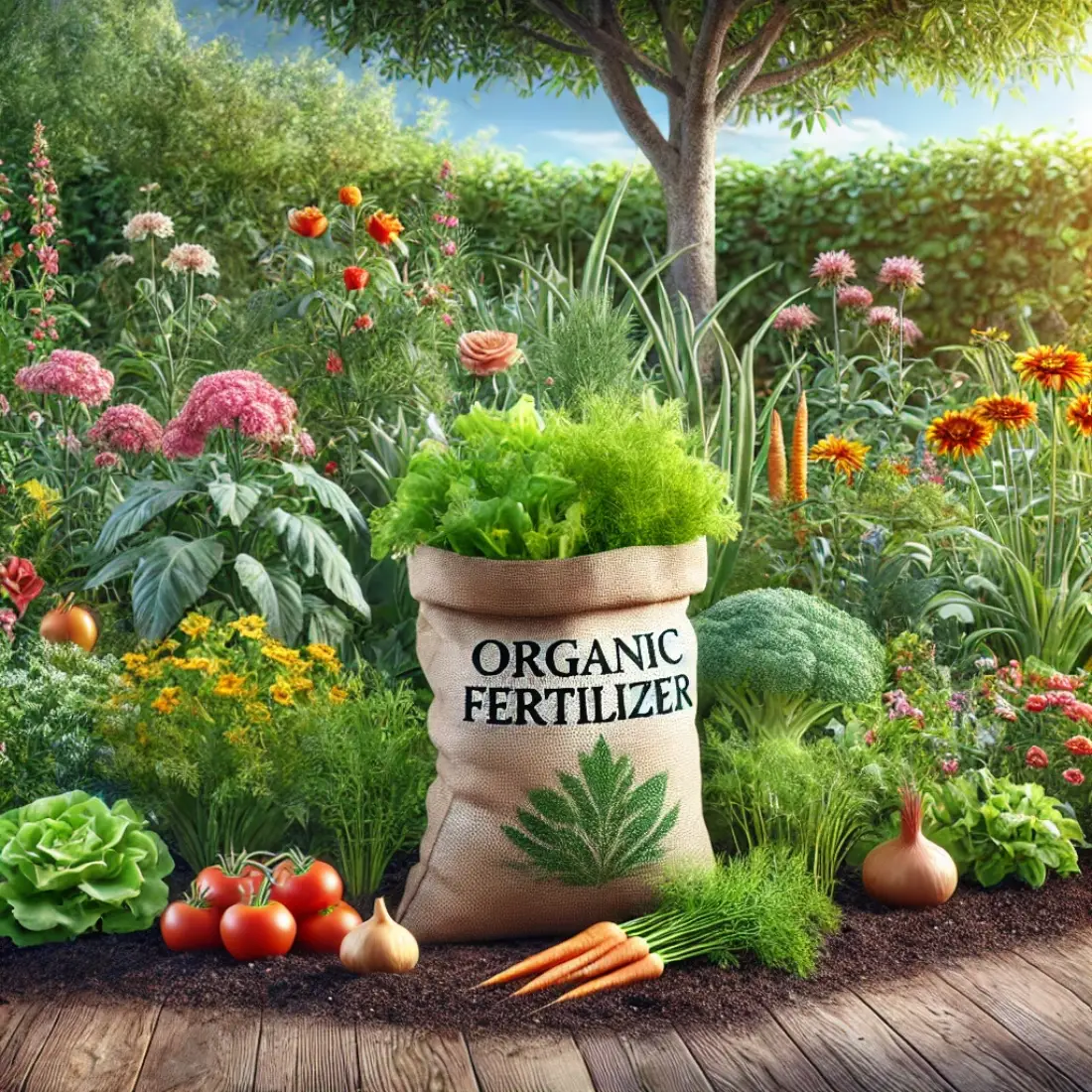Rock phosphate is a natural mineral mined from clay deposits that contain phosphorus, an essential nutrient for plant growth. In organic gardening, it plays a crucial role in enhancing soil fertility and promoting healthy root development. Unlike synthetic fertilizers, rock phosphate releases nutrients slowly, providing long-term benefits to the soil and plants.
This sustainable fertilizer option is particularly beneficial for fruiting and flowering plants, which require high levels of phosphorus to thrive. However, like any amendment, rock phosphate has its disadvantages, including potential environmental concerns and the need for specific soil conditions to maximize its effectiveness.
- Rock phosphate is a natural source of phosphorus.
- It improves plant growth and soil health.
- Has both benefits and potential disadvantages in organic gardening
Benefits of Rock Phosphate in Organic Gardening
Understanding Rock Phosphate
Rock phosphate is a naturally occurring mineral composed primarily of phosphorus, calcium, and trace elements. It’s mined from clay deposits and is a valuable source of phosphorus for plants, an essential nutrient that supports root development, flower and fruit production, and overall plant health.
Unlike synthetic phosphorus fertilizers, rock phosphate is a slow-release fertilizer, meaning it gradually releases nutrients into the soil over time. This slow-release mechanism reduces the risk of nutrient leaching and provides a steady supply of phosphorus to plants.
Rock phosphate is particularly beneficial in organic gardening because it aligns with sustainable practices, minimizing the use of chemical fertilizers and supporting long-term soil health.
Nutrient-Rich
Rock phosphate is highly valued for its high phosphorus content, which is critical for photosynthesis, energy transfer, and the formation of plant DNA and RNA. In addition to phosphorus, it contains other essential nutrients such as calcium and trace minerals that enhance soil fertility.
These nutrients are vital for developing strong, healthy plants that can resist diseases and pests. By adding rock phosphate to your garden, you can ensure your plants receive a balanced supply of necessary nutrients, leading to more vigorous growth and higher yields.
Soil Health Improvement
One of the primary benefits of rock phosphate is its positive impact on soil health. It promotes healthy root development by providing a steady supply of phosphorus, which is essential for root growth and function. Improved root systems enable plants to absorb water and nutrients more efficiently.
Rock phosphate also enhances soil structure by increasing microbial activity. Beneficial soil microbes break down organic matter and release nutrients, further enriching the soil. This improved soil structure promotes better aeration and water retention, creating an ideal environment for plant growth.
Long-Term Benefits
Rock phosphate’s slow-release nature provides long-term benefits to your garden. Unlike synthetic fertilizers that need frequent reapplication, rock phosphate releases nutrients gradually, ensuring sustained soil fertility over time.
This slow nutrient release reduces the need for constant fertilization, making it a cost-effective option for organic gardeners. Additionally, rock phosphate’s long-lasting effects mean that your plants will have a steady supply of phosphorus throughout the growing season, leading to consistent growth and development.
Over time, regular application of rock phosphate can help build up the soil’s phosphorus reserves, further enhancing its fertility and productivity.
Uses of Rock Phosphate in Organic Gardening
Application Methods
Applying rock phosphate to your garden can be done in several ways to maximize its benefits. The most common method is to incorporate it into the soil during planting. Spread the rock phosphate evenly over the planting area and work it into the top few inches of soil.
For existing plants, you can top-dress by sprinkling the rock phosphate around the base of the plants and gently working it into the soil surface. Another effective method is to add rock phosphate to the planting hole before setting in transplants.
This ensures that the roots have immediate access to phosphorus. For large garden areas or fields, consider broadcasting the rock phosphate and tilling it into the soil. It’s essential to follow recommended application rates, usually around 2 to 10 pounds per 100 square feet, depending on soil phosphorus levels and crop needs.
Ideal Crops for Rock Phosphate
Rock phosphate is particularly beneficial for crops that require high phosphorus levels to thrive. These include flowering plants, fruiting vegetables, and root crops. Tomatoes, peppers, beans, peas, and other legumes benefit significantly from the phosphorus provided by rock phosphate.
Flowering plants like roses, lilies, and other perennials also respond well to rock phosphate, leading to more abundant blooms. Root crops such as carrots, potatoes, and radishes develop stronger and healthier roots when grown in phosphorus-rich soil. Incorporating rock phosphate into the soil before planting these crops can result in increased yields and better-quality produce.
Enhancing Compost with Rock Phosphate
Adding rock phosphate to your compost pile can enhance the composting process and the final product’s nutrient content. As organic matter decomposes, the rock phosphate gradually breaks down, releasing phosphorus into the compost.
This enriched compost can then be used to improve soil fertility and structure in your garden. To incorporate rock phosphate into your compost, sprinkle a thin layer over each new layer of organic material added to the pile.
Ensure it is evenly distributed to maximize its effectiveness. Using compost enriched with rock phosphate can provide a slow-release source of phosphorus, benefiting your garden plants throughout the growing season.
Compatibility with Other Organic Fertilizers
Rock phosphate can be used alongside other organic fertilizers to create a well-balanced nutrient profile for your garden. Combining it with compost, bone meal, or green manures can enhance soil fertility and support overall plant health.
For example, using rock phosphate with compost provides a steady supply of phosphorus and other nutrients, while bone meal adds additional phosphorus and calcium. Green manures, such as cover crops, can help improve soil structure and organic matter content, complementing the nutrient benefits of rock phosphate.
By integrating rock phosphate with various organic amendments, you can create a synergistic effect that promotes robust plant growth and soil health.
Disadvantages of Rock Phosphate in Organic Gardening
Slow Release and Availability
One of the primary disadvantages of rock phosphate is its slow release of nutrients. While this slow-release characteristic can be beneficial for long-term soil fertility, it means that plants may not receive an immediate boost in phosphorus, especially in soils with low microbial activity or acidic conditions.
Phosphorus from rock phosphate becomes available to plants through a gradual process mediated by soil microorganisms. In soils with low pH levels, the availability of phosphorus is further reduced, potentially leading to deficiencies in the short term. Gardeners need to be patient and may need to supplement with other phosphorus sources if immediate availability is crucial for plant growth.
Environmental Concerns
The extraction and use of rock phosphate have environmental implications. Mining rock phosphate is an intensive process that can lead to habitat destruction, water pollution, and other environmental issues.
Additionally, over-application of rock phosphate can lead to phosphorus runoff, which contributes to waterway eutrophication, causing harmful algal blooms and negatively impacting aquatic ecosystems. To mitigate these environmental concerns, it is essential to use rock phosphate judiciously and follow recommended application rates.
Opting for sustainably sourced rock phosphate and incorporating it into comprehensive soil management practices can help minimize its environmental footprint.
Potential Soil Imbalance
Excessive use of rock phosphate can lead to an imbalance in soil nutrients. Over time, phosphorus can accumulate in the soil, potentially leading to deficiencies in other essential nutrients such as zinc and iron.
This nutrient imbalance can negatively affect plant growth and soil health. Regular soil testing is crucial to monitor phosphorus levels and avoid over-application. If high phosphorus levels are detected, it may be necessary to amend the soil with other nutrients or reduce the use of phosphorus fertilizers to restore balance. Understanding and managing nutrient interactions is vital for maintaining a healthy and productive garden.
Cost Considerations
While rock phosphate is a valuable source of phosphorus, it can be more expensive than other organic and synthetic fertilizers. The cost-effectiveness of using rock phosphate depends on its availability, transportation costs, and the specific needs of your garden. For large-scale gardening projects or farms, the expense can add up, making it essential to consider the budget and potential alternatives.
However, the long-term benefits of rock phosphate, including sustained soil fertility and reduced need for frequent fertilization, can offset the initial costs. Careful planning and cost analysis can help determine if rock phosphate is a viable option for your gardening practices.
FAQs about Rock Phosphate
What is rock phosphate and how is it used in organic gardening?
Rock phosphate is a naturally occurring mineral composed mainly of phosphorus and calcium. In organic gardening, it is used as a slow-release fertilizer to provide essential phosphorus to plants. It is typically applied by incorporating it into the soil or adding it to compost.
Can rock phosphate be used for all types of plants?
Rock phosphate can benefit most plants, but it is especially effective for flowering and fruiting plants, as well as root crops. However, its effectiveness depends on soil pH and microbial activity, so it may not be suitable for all soil types without proper amendments.
How often should I apply rock phosphate to my garden?
Rock phosphate is a slow-release fertilizer, so it does not need to be applied frequently. Typically, it can be applied every 3 to 5 years, depending on soil phosphorus levels and the specific needs of your plants. Regular soil testing can help determine the optimal application frequency.
Are there any environmental concerns with using rock phosphate?
Yes, there are environmental concerns associated with the mining and over-application of rock phosphate. Mining can lead to habitat destruction and water pollution, while over-application can cause phosphorus runoff, leading to waterway eutrophication. It is essential to use rock phosphate responsibly and follow recommended application rates.
How do I know if my soil needs rock phosphate?
Soil testing is the best way to determine if your soil needs rock phosphate. A soil test will reveal the phosphorus levels in your soil and help you decide if supplementation is necessary. Soil testing kits are available for purchase, or you can send a sample to a professional lab.
Can I mix rock phosphate with other fertilizers?
Yes, rock phosphate can be mixed with other organic fertilizers to create a balanced nutrient profile for your garden. Combining it with compost, bone meal, or green manures can enhance soil fertility and support overall plant health.
What are the signs of phosphorus deficiency in plants?
Phosphorus deficiency in plants can manifest as stunted growth, dark green or purplish leaves, poor root development, and reduced flowering and fruiting. If you notice these symptoms, a soil test can confirm if low phosphorus levels are the cause.
Is rock phosphate safe for organic gardening?
Yes, rock phosphate is considered safe for organic gardening and is approved by many organic certification bodies. Its natural composition and slow-release properties make it a suitable choice for sustainable gardening practices.
How does rock phosphate affect soil pH?
Rock phosphate can slightly increase soil pH due to its calcium content. However, the effect is generally minimal. If you have acidic soil, rock phosphate can help raise the pH slightly, making it more suitable for a wider range of plants.
Where can I buy rock phosphate?
Rock phosphate is available at many garden centers, agricultural supply stores, and online retailers. When purchasing, look for products labeled as “rock phosphate” or “soft rock phosphate” to ensure you are getting the correct type for organic gardening.










